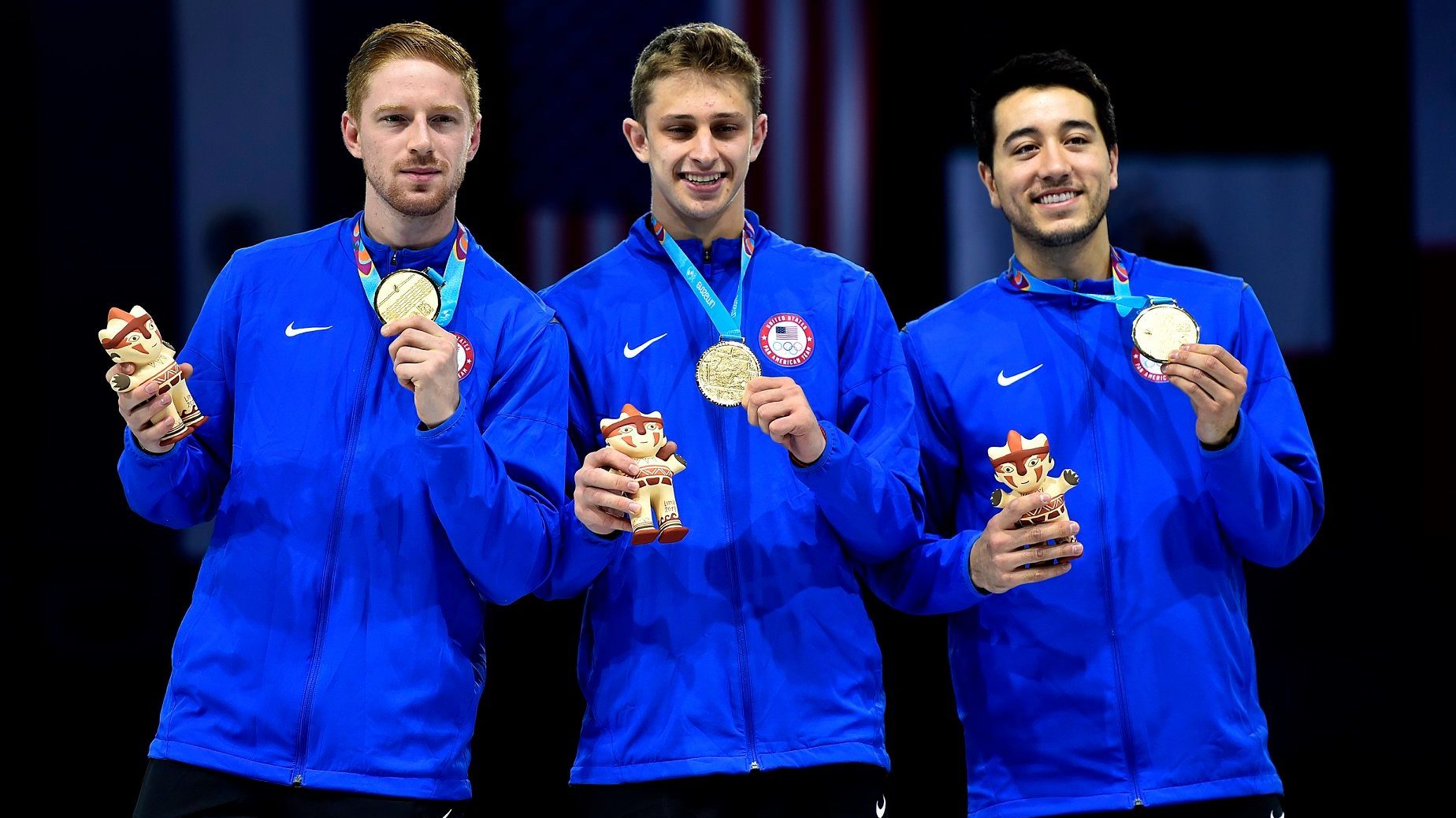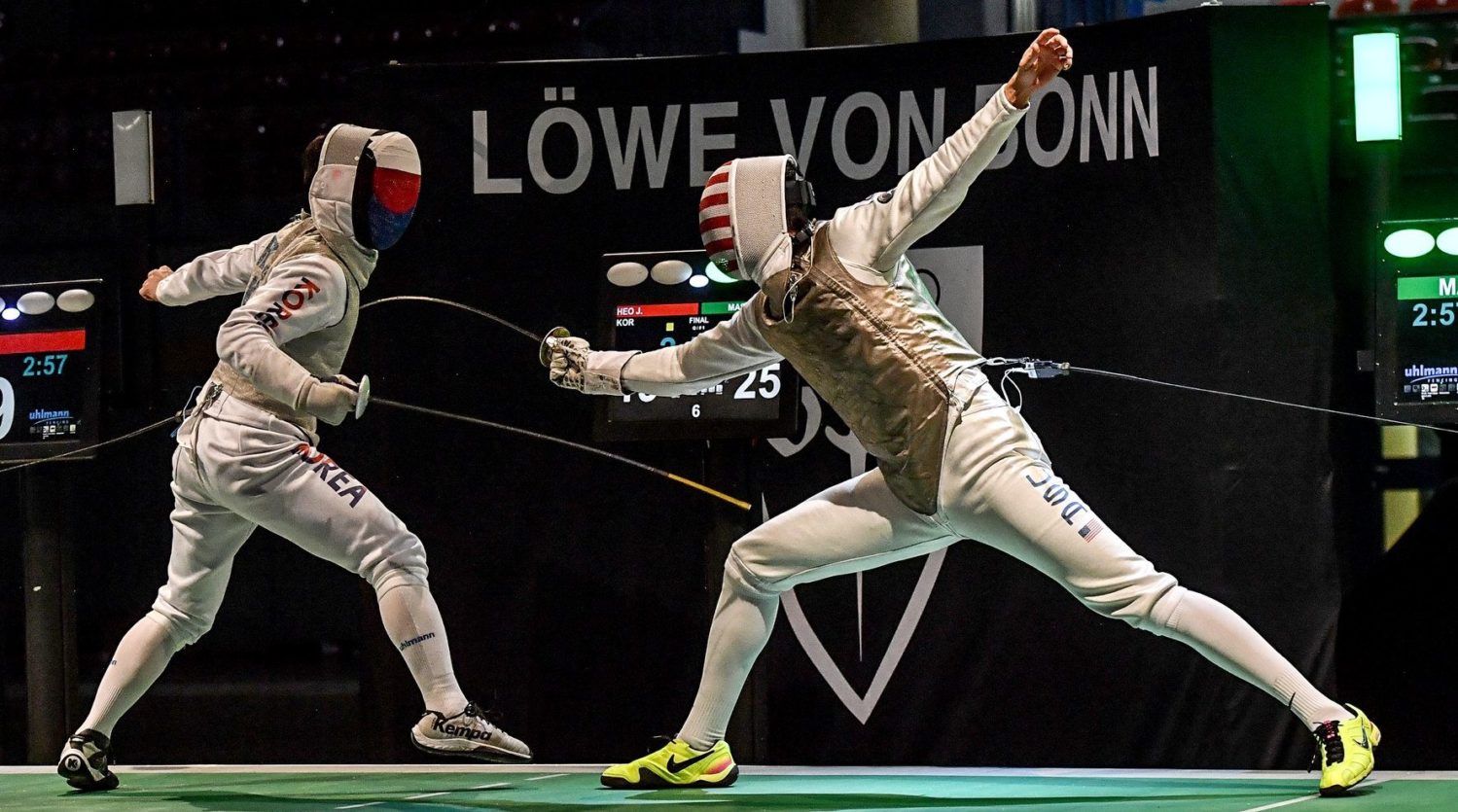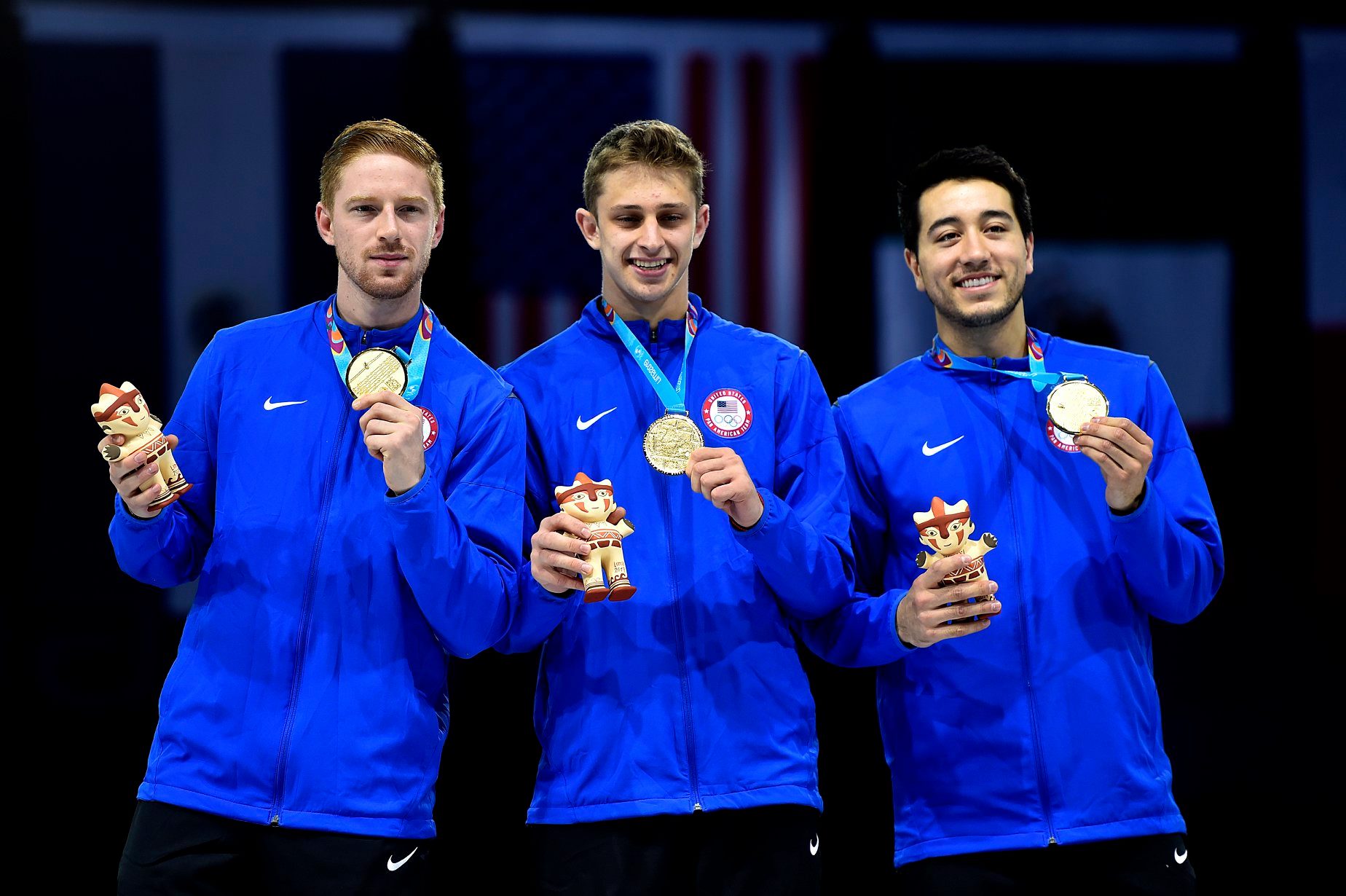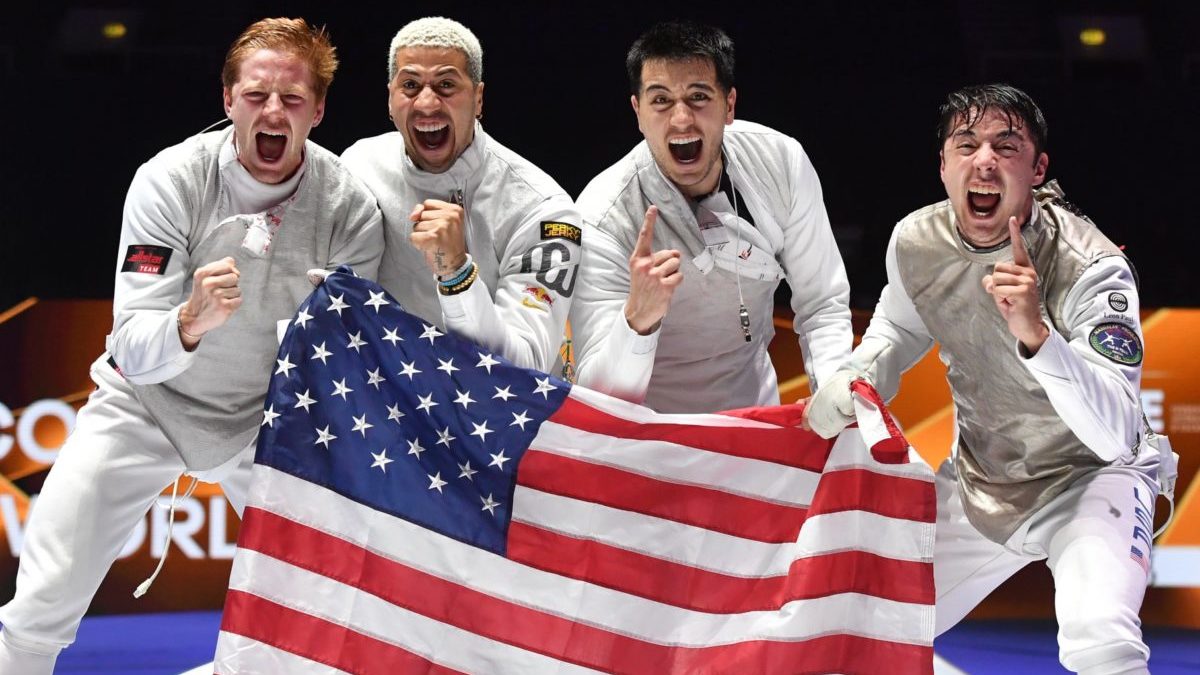Race Imboden’s decision to take a knee for the U.S. national anthem after winning the men’s team foil at the Pan American Games in Peru has taken focus from another dominant display by the USA.
U.S. fencers took ten out of a possible twelve individual and team gold medals from six days of competition inside the Lima Convention Centre starting on August 5. The women’s team made a clean sweep of all six gold on offer to them, with Lee Kiefer in the foil and Katharine Holmes — who defeated Brazil’s newly-crowned world champion Nathalie Moellhausen on her way to épée gold — both defending their individual titles from Toronto in 2015. In between these victories, Anne-Elizabeth Stone had made the individual trifecta possible by defeating Argentina’s Maria Belen Perez Maurice 15-13 in their final, before all three U.S. women’s teams were too strong. Kiefer, arguably the most accomplished fencer on the team, defeated rising 14-year-old Canadian talent Jessica Guo in their final (15-10) to win her second individual Pan Am gold.
In the men’s competition, Venezuela’s 2012 Olympic gold medalist, Ruben Limardo was the only other fencer to defend his title from Toronto, in the épée, where he beat Argentina’s Jose Dominguez, 15-6 for gold. Along with the Cuban men’s épée team, who triumphed over Argentina (45-33) in the final, Limardo was the only fencer to stand in the way of a second USA clean sweep. In the foil and sabre, veteran U.S. Olympians Gerek Meinhardt and Daryl Homer both won individual and then team gold. The latter completed a hat trick of Pan Am team wins for Meinhardt — and five in a row for USA — but the individual win was his first, following up his silver to Alexander Massialas in 2015. Homer’s individual gold was also his first, but the team win with Spears and Dershwitz (45-41 over Canada) was his second after 2015’s victory over the same opposition.
Before taking a knee on the podium, Imboden had won bronze to Meinhardt in the individual competition (he remained standing during that ceremony) and had just been awarded gold in the team event after the U.S. beat Brazil 45-23 — a victory the new world champions would have been expected to take. At the playing of the national anthem, and having told his teammates Meinhardt and Itkin of his intention to do so, Imboden dropped to one knee in protest of what he later described on his Instagram and Twitter accounts as ‘the multiple shortcomings of the country I hold so dear to my heart.’ He then listed his complaints and defended his right to express them:
“Racism, Gun Control, mistreatment of immigrants, and a president who spreads hate are at the top of a long list,” he wrote.
“I chose to sacrifice my moment today at the top of the podium to call attention to issues that I believe need to be addressed. I encourage others to please use your platforms for empowerment and change.”
Since then a media blitz not always synonymous with fencing has taken place, but it’s not the first time Imboden has taken a knee in protest. He and teammate Miles Chamley-Watson did the same thing at an FIE World Cup event in Egypt in 2017, more than 12 months after NFL quarterback Colin Kaepernick began the movement in the summer of 2016. Kaepernick has not played NFL since, and Imboden, although aware that his actions could have ramifications, has remained resolute in defence of his stance. His protest comes in the wake of another two mass shootings in the United States and amid ongoing calls from wide sections of the community for tighter gun control in America.
“I asked them (Itkin and Meinhardt) if it was something they felt uncomfortable with or wouldn’t like me to do,” Imboden said of his decision to consult his teammates beforehand in an interview with The Washington Post. “They were supportive. If they had said they didn’t want me to do that, then I would not have done it.”
“I met with the organizers. I met with the USOPC right after I did the protest,” Imboden continued. “They told me that this was something they had to consider. They were very cordial. They were not harsh. There were no bad terms from either USA Fencing or the USOPC.”
Social media has rung out with its usual chorus of outrage and support, but Imboden’s actions may well draw a suspension, potentially impacting his preparations for Tokyo 2020. The U.S. Olympic and Paralympic Committee have said in a statement that all U.S. athletes had signed an agreement saying they would not “make remarks or release propaganda of political, religious or racial nature, or any other kind” during the Games.
“Every athlete competing at the 2019 Pan American Games commits to terms of eligibility, including to refrain from demonstrations that are political in nature,” USOPC spokesman Mark Jones told Reuters in a statement.
“In this case, Race didn’t adhere to the commitment he made to the organizing committee and the USOPC. We respect his rights to express his viewpoints, but we are disappointed that he chose not to honor his commitment. Our leadership are reviewing what consequences may result.”
The two-time Olympian spoke on CNN about his decision to protest, the video of which you can view here.






